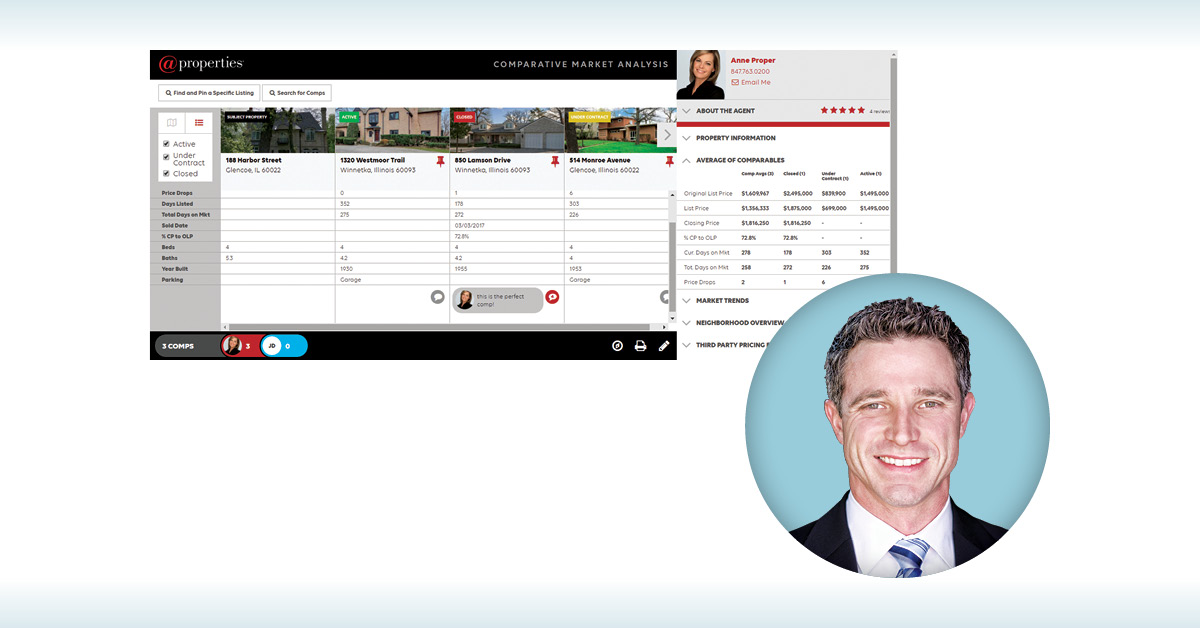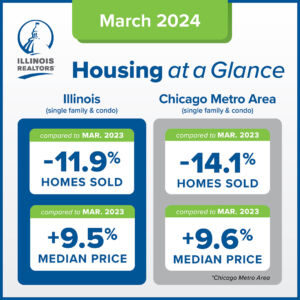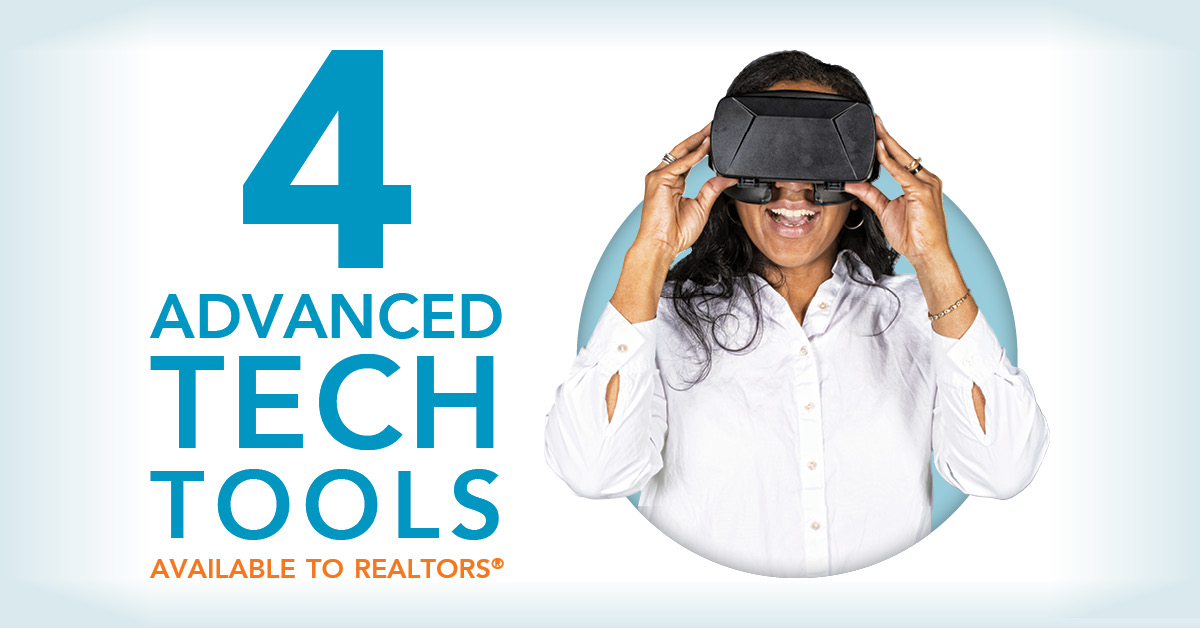REALTORS® and brokers from across the nation share their thoughts on innovative technology that’s helping real estate professionals connect with clients and work smarter.
It’s been 63 years since Delbert Williams crafted the first Supra lockbox out of a Yale bicycle lock and an aluminum container. Since then, the pace of technological innovation has picked up, bringing real estate professionals along with it.
Today, with an ever-expanding array of new technology applications, devices, software and gadgets in front them, real estate pros still like to stay a step ahead of their clients—many of whom are also technophiles—on the communication, marketing and business management fronts.
“We’re constantly having technology thrown at us, almost on a daily basis,” says Geoff Bray, broker and co-owner at Engel & Völkers in Minneapolis.
Sorting through all of the options is both time consuming and a bit of a crapshoot, particularly for busy real estate professionals who don’t always have the resources to thoroughly experiment with and test the new innovations before buying.
To help, Illinois REALTOR® spoke to a handful of agents and brokers around the country who are using advanced technologies that are producing results right now.
Here are four that you’ll want to consider adding to your company’s tech toolbox:
Accurate, Interactive CMAS in Real-Time

Kevin Van Eck – vice president of training and brokerage services @properties in Chicago
Whether it’s a two-page synopsis or a lengthy tome, the comparative market analysis (CMA) stands as one of the most important tools for homeowners who want to know what their properties are worth.
Recently, @properties in Chicago rolled out a new, interactive CMA platform that updates continuously in real-time (from the local MLS) to determine market conditions and trends, and to gauge the current value of a home.
According to Kevin Van Eck, vice president of training and brokerage services, the platform continually evaluates comparable properties relative to a specific home sale or search, taking into account variables such as location, property features, market times and price changes.
“In the past, the only CMA solutions we’ve used were ‘static,’ and/or had to be printed out on paper,” Van Eck says. “If the seller had questions, agents had to then log into the MLS and get the information, or use a different tool to find what they needed.”
Van Eck says the brokerage also realized that sellers were visiting syndicated sites to get their home valuations—a process that left agents wondering exactly which properties the sellers were viewing to come up with their own comps.
“We built this digital, interactive CMA to pull directly from the MLS, so it’s all accurate and updated by the minute,” says Van Eck, noting that adoption has been high for the platform, which was rolled out in late-2017.
“Agents can create and send out a CMA ahead of meetings with the sellers, who can then search for their own comps and ‘pin’ their own relevant properties.”
Showcasing Homes in a Virtual Reality Theatre

Lindsay Bacigalupo – CEO and co-owner, Engel & Völkers in Minneapolis
The days of driving buyers around to get a “first look” at prospective homes is over, at least for the team at Engel & Völkers, where a recently-built virtual reality (VR) theater serves as a place where clients can stop in and view listings using the firm’s Oculus Rift VR device. Featuring all of the national brokerage’s listings that have been shot in VR (not just those in the Minneapolis area), the theater has only been operational since October and is already paying for itself.
Lindsay Bacigalupo, CEO and co-owner, says the idea came about when local statistics revealed that typical buyers spend less than 30 seconds looking at a listing online, but that they spend 7-8 minutes on a VR listing.
“With our theater, we can give our sellers very real, tangible exposure,” says Bacigalupo, whose agents are using the theater for wine-and-cheese nights and other events.
The fact that VR headsets are a novel concept for most consumers has boosted attendance at these events.
Bacigalupo says the VR theater has also proven valuable in marketing new construction, where homes sell so quickly that builders don’t even have models available to visit anymore.
“We were at the point where we had to ask past clients if we could come in and show their homes,” she recalls. “Now, we can create a tour in VR and bring buyers to one place (the theater) to tour anywhere from two to 10 homes, depending on the size of the community. They can walk through them all in person.”
Filling the Human Role with Chatbots

Mark Choey – co-founder and CTO Climb Real Estate in San Francisco
Computer programs designed to simulate conversation with human users, especially over the Internet, chatbots help companies save time and effort by automating functions like customer support.
And while real estate is still a largely relationship-based business, where “real” people talk to one another on the way to the closing table, there is also a place for non-human-based customer interactions.
At San Francisco-based Climb Real Estate, chatbots are helping to fill the void that can form online when a customer needs help but an agent isn’t standing by ready to chat live.
“Let’s face it. Real estate agents aren’t always at their desks, waiting to chat with someone online,” says Mark Choey, co-founder and Chief Technology Officer for the brokerage, which is currently utilizing ReadyChat’s live chat service, but also keeping an eye out for more advanced chatbot offerings. Those built on artificial intelligence (AI) platforms, for example, could play an even larger role in the online customer service realm.
“At this point, most chatbots start off being handled by the computer, but then hand the customer off to a human when things get too [complicated],” Choey says.
When a potential client mistypes a word, for example, or uses non-traditional (or unexpected) language, the chatbot can’t always handle those complexities.”
Chatbots are also helping Climb Real Estate’s agents be more productive. For instance, looking up public tax records that show property purchases, owners, home size and purchase prices has “always been very onerous,” says Choey.
“It requires multiple logins and the user interfaces are poor. A chatbot allows agents to open up Messenger, enter a request (i.e., look up 123 Main Street, Chicago, IL) and move onto more pertinent work as the bot gathers all of the relevant details. This results in real productivity gains for agents, who can get more work done in the limited time that they have.”
3 Ways Blockchain Could Change Real Estate
Real estate is an industry where a lot of money changes hands and where the typical American moves 11.7 times during his or her life, according to the U.S. Census Bureau. Blockchain is being looked upon as a viable route to more secure, streamlined transactions.
A shared, distributed ledger that facilitates the process of recording transactions and tracking assets in a business network, blockchain applies to tangible assets (i.e., a house, a car, cash, land) or intangible like intellectual property (patents, copyrights, or branding).
The Forbes article, “Three Ways Blockchain Could Transform Real Estate In 2018,” outlines three ways blockchain could change the way buyers and sellers conduct their financial transactions:
MLS Property Data: Because it enables secure data sharing, blockchain can serve as the foundation for a shared, national database that provides real-time access to accurate “straight from the source” property information. It also opens up more opportunities for collaboration among players in the real estate industry.
Title Records: Two years ago, Cook County began experimenting with blockchain for the transfer and tracking of property titles. When someone buys a property, he or she receives a “digital token” and the traditional paper deed. The documentation of the token transfer is then used as proof of ownership.
Transactions: Because blockchain doesn’t require a “trust” between two parties to conduct business, it allows consumer financial information to be shared securely with other parties. For instance, one person can send funds to a recipient with the knowledge that those funds won’t be released until the transaction is formally complete, thus speeding up the transaction management process.
Holding Facebook Live ʼVirtualʻ Open Houses

Jeff Miller – co-founder AE Home Group in Maryland
More than just a social media platform, Facebook is a place where many real estate professionals start (and continue) conversations with current and prospective customers.
At AE Home Group in Maryland, Jeff Miller, co-founder, says his team has been using Facebook Live to hold virtual open houses to attract buyers. (Facebook Live is a basic feature that offers live-streaming video capabilities to users.)
It works like this: On Sundays between 1 p.m. and 3 p.m., team members set up a camera at one of their listed properties and then use Facebook to answer attendees’ “live” questions. The events often attract hundreds of local buyers, says Miller, who has sold several properties using this marketing approach.
To capture the content, the company uses livestream cameras from Mevo. Add a cheap microphone stand and a mobile app to the equation and you get a professional setting for streaming to platforms such as Facebook and YouTube.
“The cool thing is that we can edit in real-time,” says Miller. “It gives the presentation a more professional feel than you can get from just streaming them on a mobile device.”
“Video is becoming more and more important for our clients, who are spending more time on YouTube than they are on Google,” says Miller. “It gives us a chance to get more impressions, put up more advertising and make more revenue.”
It also helps AE Home Group showcase some of the social media platform’s new promotional strategies, which are less focused on company pages.
“Facebook is trying to get more video on its platform and allowing those videos to achieve a larger reach,” says Miller. “By holding Facebook Live events, we can create content that actually gets us more impressions and—at least in real estate—the more times people see you, the more likely it is that you’ll find a buyer.”
That’s exactly what he says happened recently when a buyer made an offer and purchased one of AE Homes’ listings within one week of seeing the virtual open house.
The live events are equally as valuable for listing agents.
“From the thousands of people who come to them, we always get at least one person who wants to do business with us as a result,” says Miller. “In terms of acquiring new clients, it’s been a real silver bullet in this market.”
About the writer: Bridget McCrea is a business, real estate and technology writer in Miami, Fla. She can be reached at [email protected].




 Create professional development programs that help REALTORS® strengthen their businesses.
Create professional development programs that help REALTORS® strengthen their businesses.
 Protect private property rights and promote the value of REALTORS®.
Protect private property rights and promote the value of REALTORS®.
 Advance ethics enforcement programs that increase REALTOR® professionalism.
Advance ethics enforcement programs that increase REALTOR® professionalism.
 Protect REALTORS® by providing legal guidance and education.
Protect REALTORS® by providing legal guidance and education. Stay current on industry issues with daily news from Illinois REALTORS®, network with other professionals, attend a seminar, and keep up with industry trends through events throughout the year.
Stay current on industry issues with daily news from Illinois REALTORS®, network with other professionals, attend a seminar, and keep up with industry trends through events throughout the year.







